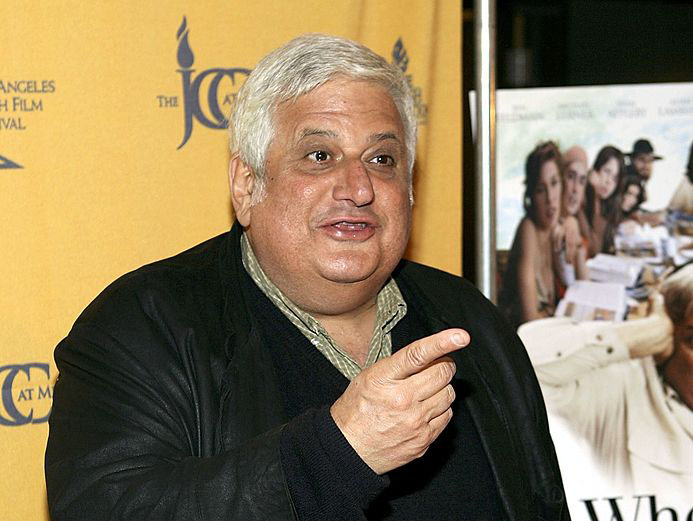It is highly unusual for me to be speaking out politically.
I have worked for Republican and Democratic presidents alike. I was a political appointee during the Reagan administration, serving on the National Security Council staff in the White House. I held a senior position in the
State Department during George H. W. Bush’s presidency. And, I was Bill Clinton’s Middle East peace negotiator — also a senior appointee position.
I have been largely nonpartisan, living the ideal that politics stopped at the water’s edge, and foreign policy should somehow be above politics. So why am I now speaking out and calling on others to support Sen. Barack Obama?
Put simply, because the stakes are so high. For one thing, the financial meltdown has huge implications for our place in the world. We cannot be strong internationally if we are weak at home, with an economy in crisis. Our next president must understand the global economy and financial markets — and be able to inspire confidence at home and abroad. But he must do so at a time when our standing in the world has, at least in my memory, never been lower.
While we must never rely on anyone else to do for us what we must do for ourselves in national security, there are multiple threats today that we cannot resolve without the cooperation of others. In fact, when it comes to preventing the worst weapons from falling into the worst hands or defeating apocalyptic terror groups or coping with global health challenges or stopping global warming or avoiding an international depression, we cannot do everything on our own. We need others internationally to accept our objectives and be prepared to join their means to ours.
When I was with Obama in Berlin and more than 200,000 people turned out in the heart of Europe to wave American flags, this was an extraordinary development. It reminded us that an American leader who is admired can lead not only our country but also make it easier for others to follow our lead. And, when I look at the Middle East — where we face our greatest threats today — we need others to follow our lead in stopping Iran from going nuclear and discrediting radical Islamists.
Today, we are in trouble in the Middle East. Everywhere we look — whether in the Gulf, Iraq, Lebanon or Gaza and the West Bank — we see Iran challenging American interests and allies. Iran uses coercion and intimidation — using groups like Hezbollah and Hamas — to weaken existing regimes and to employ terror. It is Iran that arms these groups and threatens Israel on a daily basis.
Consider what has happened to Israel’s strategic position during the course of the Bush administration. In 2001, Iran was not a nuclear power, but it is today. It could not enrich uranium then but it does so now and has already stockpiled several-hundred kilos of low-enriched uranium — about half of what it would need for its first nuclear bomb. The Bush policy on Iran has failed, and unless the next president can change Iranian behavior, Israel will face an existential threat. It already faces a dramatically different threat from what it faced seven years ago from both Hezbollah and Hamas.
Hezbollah now has a veto power over any decision the Lebanese government can make and possesses 40,000 rockets — and those rockets are not only three times as many as it had only two years ago but are more accurate and have longer range than the ones that hit Israel in the summer of 2006. Hamas has taken over Gaza, creating a miniterror state there and today has over 2,000 rockets.
Israel cannot afford four more years of seeing the threats grow against it. It cannot afford four more years of U.S. policies that are tough rhetorically but soft practically. It cannot afford four more years of America being on the sidelines diplomatically.
When I was in Israel a few weeks ago, President Nicolas Sarkozy of France, Prime Minister Recep Tayyip Erdogan of Turkey and Sheikh Hamid of Qatar were all visiting Damascus, and Israelis asked me who was there watching out for Israel’s interests? Similarly, who was there to watch out for Israel’s interests when Qatar brokered the understanding that gave Hezbollah a veto over any Lebanese decision after the fighting in May? Israel can surely watch out for its own interests in the indirect negotiations that Turkey is mediating between Israel and Syria, but will Turkey be as concerned for Israel’s interests as America would be?
It should come as no surprise that when America sits on the sidelines in the Middle East, it creates a diplomatic vacuum, and others invariably fill it. Since the Bush administration would not engage Iran, the Europeans have taken the lead on the diplomacy. While their efforts have been serious and genuine, it is clear that they have not generated the pressure that America in the lead might have produced — and absent that pressure and absent the Iranians being forced to make a choice, Iran will not change its behavior.
I was with Obama in Israel and in Europe, and I saw how he focused on the urgency of the Iranian threat. I saw how he used his discussions in Israel to remind the European leaders that Israelis are justified in seeing Iran with nuclear weapons as an existential threat — and that for Israel’s sake and our own we must put far more pressure on Iran if we are to stop it from going nuclear.
Obama understands that weak sticks and weak carrots — the current policy — can’t work. We need strong sticks to concentrate the Iranian mind on what they stand to lose, and we need strong carrots, conveyed directly, to show the Iranians they have something to gain by giving up their nuclear weapon pursuit. And, if in the end diplomacy fails, the fact that we engaged directly and Iran was unwilling to alter its behavior creates a very different context for tougher options.
Engaging without illusions might be one way to describe how diplomacy would be conducted in an Obama administration. Just like with Iran, he would engage on Arab-Israeli peace. Not because he knows it will produce peace, but because he again understands the consequences of disengagement. Who gained when the Bush administration walked away from peace making for more than six years and then in its last years pursued it incompetently? Hamas, because like all radical Islamists, they gain when there is hopelessness and frustration. Who lost? Those in the Arab and Palestinian world who favor a two-state solution but need the possibility of peace to make their case and to have the political space to build their authority.
It is my Middle Eastern hat and my attachment to Israel that ultimately inspires my support for Obama. I saw first hand his appreciation for Israel’s predicament, its needs and his instinctive and emotional commitment to the relationship. But more than this, I know he understands that neither Israel nor America can afford four more years of Iran and the radical Islamists gaining strategic leverage in the Middle East. Slogans won’t prevent that. A fixation on Iraq won’t prevent that. But a leader who understands how to use all the elements of American power, revitalize that power and influence and get others to follow us in order to ensure we win the battle for hearts and minds will be able to do so.
In this election, it is clear to me that Obama is that leader.
Dennis Ross served as President Bill Clinton’s Middle East negotiator and President George H.W. Bush’s head of policy planning in the State Department. He gives advice to the Barack Obama presidential campaign and recently accompanied Sen. Obama on his trip to the Middle East and Europe.






















 More news and opinions than at a Shabbat dinner, right in your inbox.
More news and opinions than at a Shabbat dinner, right in your inbox.